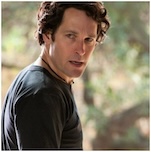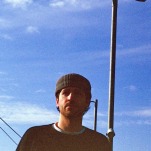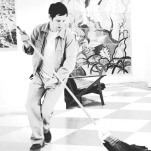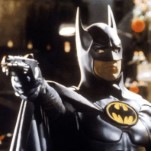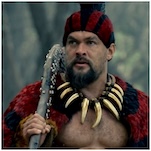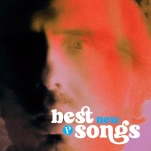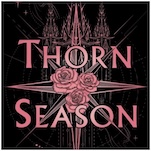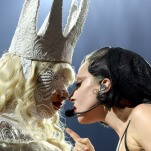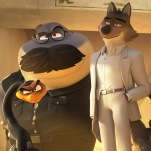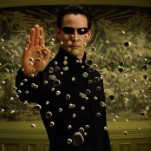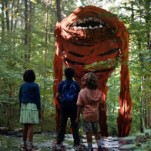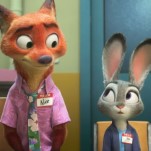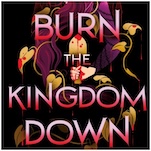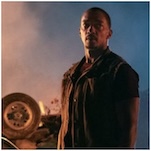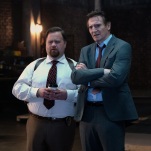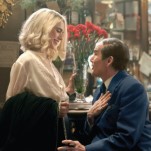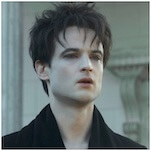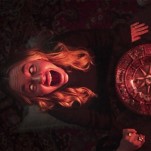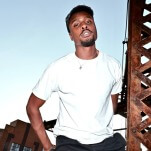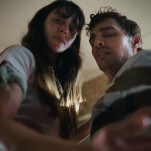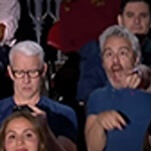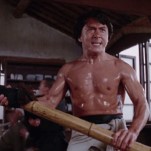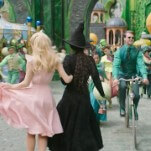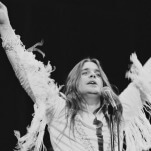Paul Schrader and Nicolas Cage Run and Gun on Dog Eat Dog
The director and actor talk about the risks of control in making their new film.
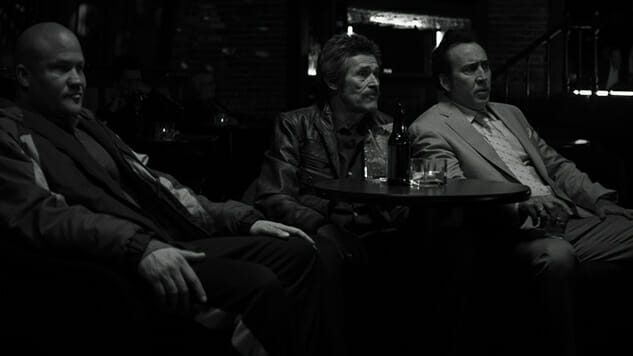
The last time writer-director Paul Schrader and actor Nicolas Cage worked together, on the 2014 thriller Dying of the Light, it didn’t work out well. Disputes with the financiers led to Schrader walking off of the project, and the end result—edited and scored without Schrader’s approval—bore only a passing resemblance to the far more ambitious film he and Cage had conceived. (To add insult to injury, the distributor marketed the compromised version by shamelessly exploiting Schrader’s name, hyping the movie as a new release “From the writer of Taxi Driver and Raging Bull.”)
Schrader and Cage’s new film, an adaptation of Eddie Bunker’s brilliant crime novel Dog Eat Dog (in theaters and on demand November 11th), proved to be a far happier experience. The tale of a trio of criminals (Cage is joined by Willem Dafoe and Christopher Matthew Cook) who embarks on an ill-advised kidnapping scheme, Dog Eat Dog is one of the most audacious films Schrader has ever made—which is saying something, given that this is the guy who directed Mishima, American Gigolo and The Canyons. An assault on the eyes, ears, and good taste, it’s vulgar and confrontational in the best sense: darkly hilarious, provocative and stylistically unlike anything the director’s filmed before.
Paste sat down with Schrader and Cage following the Los Angeles premiere of the film at the American Cinematheque’s Beyond Fest and asked how the whole thing came about.
Paste Magazine: The book Dog Eat Dog floated around for a long time—Walter Hill talked about doing it in the ’90s, and other people have tried to get it going but couldn’t. How did it first come to you and what attracted you to it?
Paul Schrader: It was kind of a back-asswards genesis because Nic and I had done a film several years ago, which was taken from my hands and it was a very unpleasant experience. I said to Nic, “If we live long enough we should work together again, and get this stain from our clothes and do it right, with final cut,” and he said, “Yes, we should do that.” Then, somebody asked me to read this script by Matthew Wilder. I read that opening sequence with Mad Dog [played by Willem Dafoe] and thought, wow. Maybe this is it. Maybe Nic would like to do this one. I sent it to him and he said, “Yeah, I do want to do it, but I want to play Troy, not the crazy one.”
That’s how it all started, and then all of a sudden, now I’m making a crime film. I’m not a crime film director. I said, “Oh my God, I’ve got a crime film now with Nic Cage and Willem Dafoe. How do I do this?” Then I had to figure it out, and I wanted to make it feel like 2016, so it’s not really that faithful to Eddie Bunker.
Paste: Nic, why did you want to play Troy as opposed to Mad Dog? Mad Dog’s a showier part.
Nicolas Cage: I had just started a movie when Paul called me. I was in Marrakesh, Morocco, and I was doing this picture called Army of One. I play a guy who’s kind of a Don Quixote eccentric who’s going after Osama bin Laden, and frankly I found it exhausting. I just didn’t want to play another whackjob. Paul sent me the script and I said, “I love it.” It has this sort of non-linear narrative to it, kind of like La Jetée—it was very abstract, almost like a collage. I wanted to work with Paul again because I’m a big fan and he wrote a brilliant script for Dying of the Light. It’s a shame what happened to the picture, but that was a tremendous part for me. Anything Paul wanted me to do I would jump at, but he consented to my request to play Troy, which is great because we got Willem Dafoe to play Mad Dog and that’s about as good as it gets.
Schrader: In fact, this is my fifth time with Willem, and the last time I worked with him he did a day job for me. He said, “Look, I did this as a favor, but don’t ever ask me again. If you want me to work for you again, give me a real role.” I said, “Point taken.” Then I was able to call him up and say, “Willem, I got a real role for you,” so it worked out.
Paste: I feel like you and Dafoe throw down the gauntlet in that opening scene—it really tells people what kind of movie this is going to be and whether they should be on board.
Schrader: We try to clear the house of all the people who came to the wrong theater [laughs].
-

-

-

-

-

-

-

-

-

-

-

-

-

-

-

-

-

-

-

-

-

-

-

-

-

-

-

-

-

-

-

-

-

-

-

-

-

-

-

-

